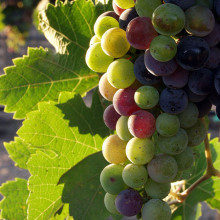Should you drink wine in the desert? Would an alcoholic drink dehydrate you faster than no drink at all? If so, should you let the alcohol evaporate first, and how long would this take? This is the subject of this week's answer, and we ask how long you could survive in a sealed car, and should you switch off your TV in a lightning storm?
In this episode

00:00 - Drink Wine or Drink Nothing?
Drink Wine or Drink Nothing?
Sue Baic, Lecturer in Nutrition and Public Health at Bristol University: Presumably by then you'd actually be pretty thirsty. Your drive would be to try to drink whatever you could but actually that would be the wrong thing to do. Any alcoholic drink over about 10% alcohol strength will actually be a net dehydrator. This means it will cause you pass out more water in your urine than it actually gives you. For example, for a 125ml glass of wine you'd actually end up passing 150ml of fluid so it'll be a net loss of about 25ml of fluid. It definitely wouldn't be a good thing to do to drink that. With beer, if you're drinking full-strength beer at 5% alcohol you'll lose about half of the water but the other half will contribute to your daily water intake.
Niall Macfarlane, Senior Lecturer, Faculty of Biomedical Sciences, Glasgow University: The common belief that taking alcohol will lead to dehydration is pretty well-supported in scientific research. The reason for this dehydration effect is that when the blood alcohol level rises it stops the release of a hormone called anti-diuretic hormone.
As the name suggests this hormone normally prevents urine production so when you lower its levels that leads to an increase in the amount of urine you produce. Consequently you can get dehydrated. However, the exact amount of alcohol that increases urine production can vary from person to person. It's safe to say that if you drink a lot that will always cause a problem. I know there's actually some use and value in that wine.
I know that alcohols are more volatile than water and that ethanol boils at only 78 degrees as opposed to 100 degrees Celsius for water. Perhaps there's some salvation there. I could open the bottle of wine in the shade, even the shade from my own body, and I should be able to remove alcohol from the wine by letting it evaporate.
If you're into cooking and you pour some wine into a frying pan then the alcohol disappears almost instantaneously. If you're out in the desert and you're in the sun the temperatures could be over 100 degrees centigrade. So if it's anywhere above 80, 90 degrees you open the bottle and the alcohol will evaporate off within 30-40 minutes. This would leave a liquid to hydrate and provide energy for myself.
Given that situation, perhaps I could take myself to have a few glugs and get a party going...










Comments
Add a comment